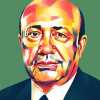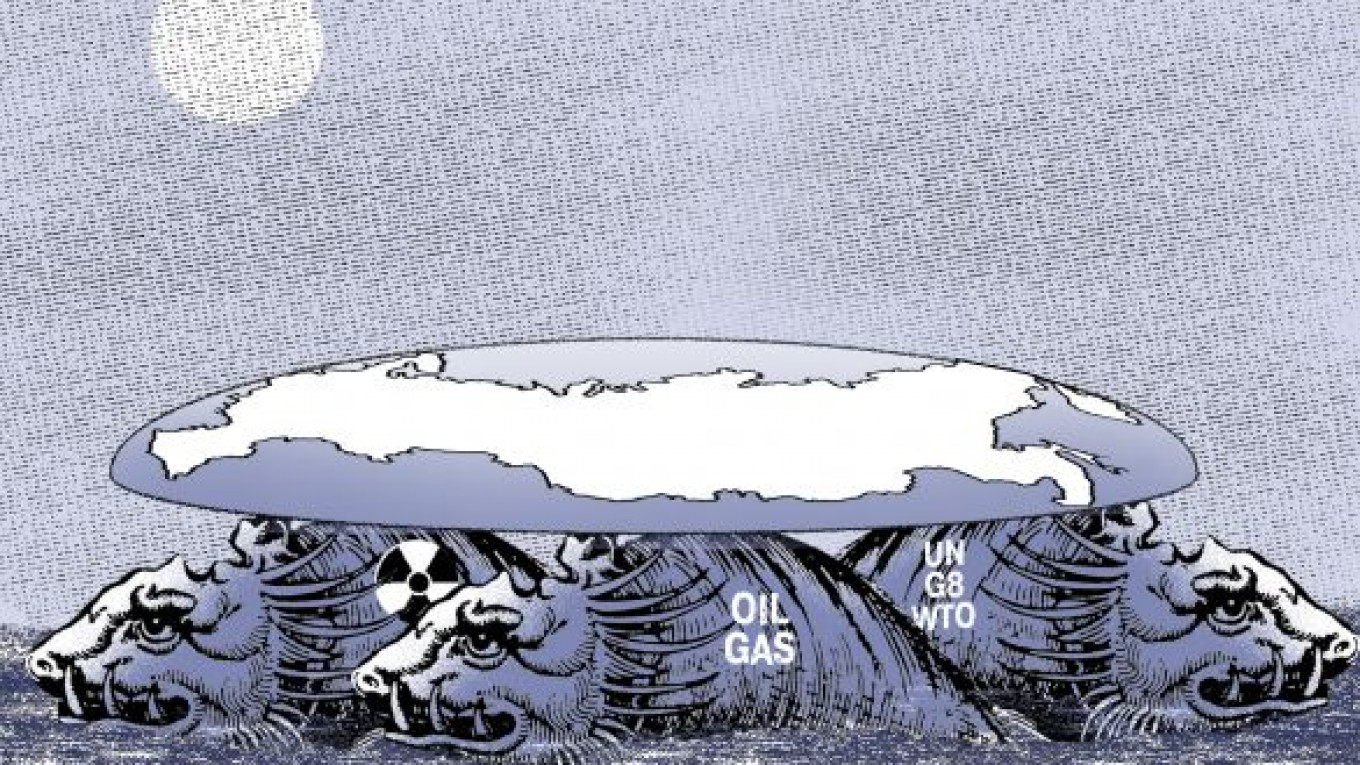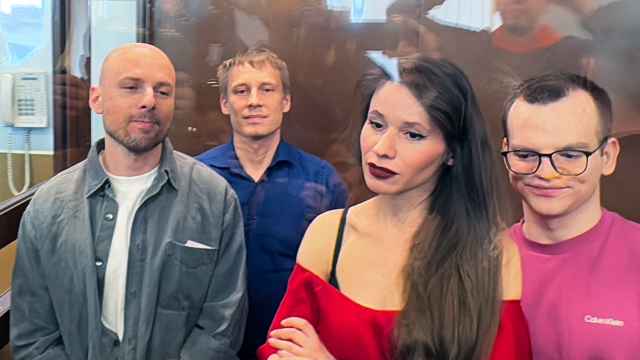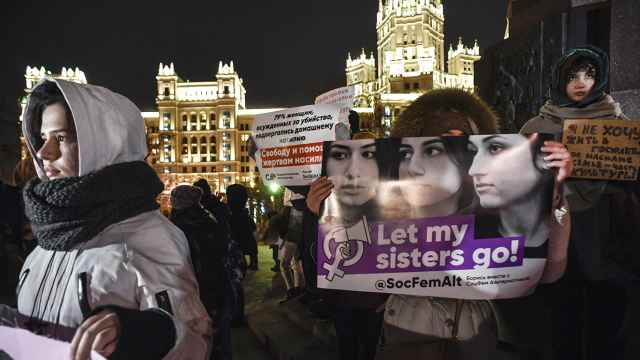There are very few of us today who would question the need for Russia's economy to undergo a fundamental transformation. Clearly, Russia has to be less dependent on its raw materials and more dependent on its intellectual capital. It should shy away from being driven by large corporations, and it should instead focus on growing its small and midsized businesses. The economy needs to become dynamic, innovative and modern. In other words, it needs to become a "smart economy."
But a transition to a smart economy is impossible without a corresponding change in the country's social and political spheres. Russia's history has shown that the complete modernization of the economic, social and political spheres comprises the essential building blocks of this kind of transition.
As for Russia's foreign policy, it should be aligned with the country's own potential. It should be focused on helping Russia increase its potential and contribute to the economic and social growth of the country. By following this logic, the country's foreign policy can acquire new dimensions and remain an influential player on the global arena. In other words, Russia's foreign policy also needs to be smart.
This is not to say Russia's current foreign policy is not smart now. It accurately reflects the way the country's current political system, economy and society are structured. In most cases, the limitations of Russia's current foreign policy are objective and are neither the result of subjective mistakes nor of the lack of professionalism from those who shape and implement this policy.
Russia's foreign policy is currently built on three main pillars: military strength — above all, its nuclear capacity — energy and raw materials, and its membership in key international organizations, the most important of which is its permanent seat on the United Nations Security Council. By leveraging these three pillars, Russia has preserved its strong international standing, which was diminished at the turn of the century. These pillars also helped Russia return to the club of great powers and currently guard its prominent role in global politics.
But with time, these pillars will inevitably start losing their value. In the 21st century, military strength more often creates more problems than it solves. The U.S. military interventions in Iraq and Afghanistan are good examples. In our economically interdependent world, taking a tough stance on energy diplomacy is a double-edged sword. In addition, the future of the central role taken by present international organizations — even prominent ones like the UN, the World Bank, the Group of Eight, the G20 and others — in global politics and economy is uncertain.
One of the key peculiarities of the global system in this century is the quantitative transformation of threats and challenges that all nations are facing. First of all, the number of threats is increasing. Second, they are more diverse and more sophisticated than they were in the traditional system of international relations in the last century. Third, they are increasingly harder to predict and prepare for.
In this new world, the winners will be those countries that find the optimal balance between new and old instruments of foreign policy influence; between national traditions and innovative approaches to international problems; and between the consistency of strategy and the flexibility of tactics. A smart foreign policy doesn't imply that Russia should give up on its traditional instruments of influence, but it does mean that it should be willing to consider these instruments along with new, less habitual ones that have yet to be mastered.
We still have a couple years to avert a situation where the real international standing of this country will start to gradually diminish. That is why it is necessary to start modernizing Russia's foreign policy as soon as possible.
If Russia can create a smart economy, it will also create new potential for the country's foreign policy, while also defining its priorities. For instance, a smart economy will make it more attractive for highly skilled migrants. At the same time, though, this will require a well thought-out, detailed migration strategy in addition to higher standards of engaging with Russian diasporas abroad.
But the relationship between a smart economy and a smart foreign policy is more complicated in practice. Foreign policy does not always have to follow the lead of the economy. In some cases, foreign policy decisions can trigger important economic processes. Thus, Russia's accession to the World Trade Organization will undoubtedly speed up its transition to a smart economy, just as Russia's entry into the Council of Europe would accelerate the reform of its legal system.
The success of such a smart foreign policy will greatly depend on the ability to form a broad coalition of state institutions as well as the private sector, think tanks and civil society for achieving the common goal of strengthening Russia's standing in the world. The role of the state in launching and adjusting such mechanisms will be crucial.
Igor Ivanov, foreign minister from 1998 to 2004, is president of the Russian International Affairs Council.
A Message from The Moscow Times:
Dear readers,
We are facing unprecedented challenges. Russia's Prosecutor General's Office has designated The Moscow Times as an "undesirable" organization, criminalizing our work and putting our staff at risk of prosecution. This follows our earlier unjust labeling as a "foreign agent."
These actions are direct attempts to silence independent journalism in Russia. The authorities claim our work "discredits the decisions of the Russian leadership." We see things differently: we strive to provide accurate, unbiased reporting on Russia.
We, the journalists of The Moscow Times, refuse to be silenced. But to continue our work, we need your help.
Your support, no matter how small, makes a world of difference. If you can, please support us monthly starting from just $2. It's quick to set up, and every contribution makes a significant impact.
By supporting The Moscow Times, you're defending open, independent journalism in the face of repression. Thank you for standing with us.
Remind me later.








